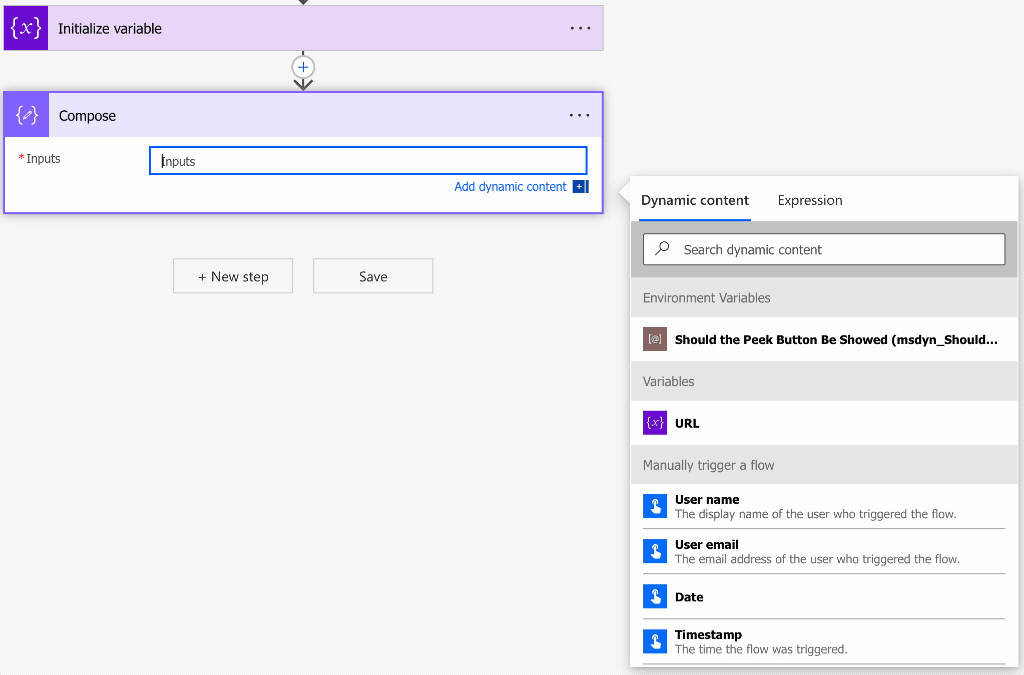Parsing URLs is super hard, but Power Automate has many functions that deal with this so nicely that it is a waste of time for us to even think about manually parsing URLs.
Now that we have that out of the way, let’s move to where we find it.
Where to find it?
You can find the function in every action where a formula is supported. For example, let’s look at a “Compose” action:

As you can see, we can auto-complete by using the “tab” key. Let’s look at how to use it.
Usage
It follows a simple pattern.
- String
Let’s start with a simple example:
String 'https://manueltgomes.com/'
will return
manueltgomes.com
If the value is in a variable, here’s how to use it.
uriHost(variables('URL'))
The variable contains: 'https://manueltgomes.com/'
will return
manueltgomes.com
The function will get the domain and any other part. If you’re not familiar with the components, don’t worry. What you need to know is that the first part of the URI is the “host”, meaning that “www.google.com/maps”, for example, has the host as “www.google.com”.
In other words, the “uriHost” function gets a URI and removes the first “HTTP” part and everything after the “.com” or any different top-level domain like “.io” or “.coffee” (it’s a real one, believe me). It will keep the “www” part if you include it.
Let’s look at a longer URL:
https://manueltgomes.com/area/microsoft/powerautomate/
Will return:
manueltgomes.com
As mentioned before, everything after the top-level domain will be ignored by the “uriHost” function because it’s not part of the host.
Limitations
Depending on the size of your string, your expression may return an error, even if it’s correct. Please note that the expressions have a max size of 8,192 characters. If you have an expression that is even bigger than 1000, I would strongly advise that you break it into smaller, manageable formulas.
Another limitation is that the URI needs to be complete, meaning that you need to include the “HTTP” part; otherwise, you’ll get the following error:
Unable to process template language expressions in action 'Compose' inputs at line '0' and column '0': 'The template language function 'uriHost' expects its parameter to be a well-formed absolute URI. The provided value was 'www.google.com/maps'. Please see https://aka.ms/logicexpressions#uriHost for usage details.'.
In the above case, I provided the following expression:
uriHost('www.google.com/maps')
Although this makes sense and should not be considered a limitation per se, I would because Microsoft could default it to “HTTP” to make things easier instead of returning an error.
Recommendations:
Here are some things to keep in mind.
Don’t nest
There's no real reason to do it, but if you find yourself in a situation where you have nested uriHost functions in a formula, you should review it and make everything more straightforward. You end up in the same place since the website that you’re providing already has only the host part. If this happens, either remove all the "uriHost" functions or check if one should not be there.
Always add a comment
Adding a comment will also help avoid mistakes. Indicate why you are getting the domain and how you’ll use it. It may look obvious initially but will not be in a few months or years. It’s essential to enable faster debugging when something goes wrong.
Sources:
Microsoft’s uriHost Function Reference
Back to the Power Automate Function Reference.
Photo by Kotagauni Srinivas on Unsplash




No comments yet
Be the first to share your thoughts on this article!